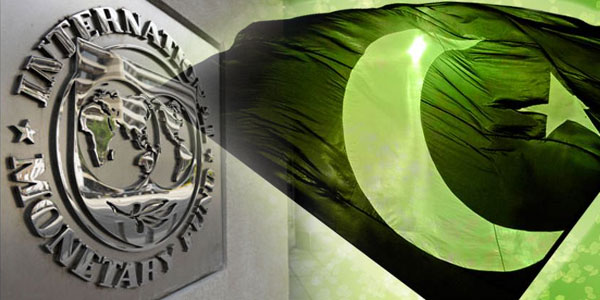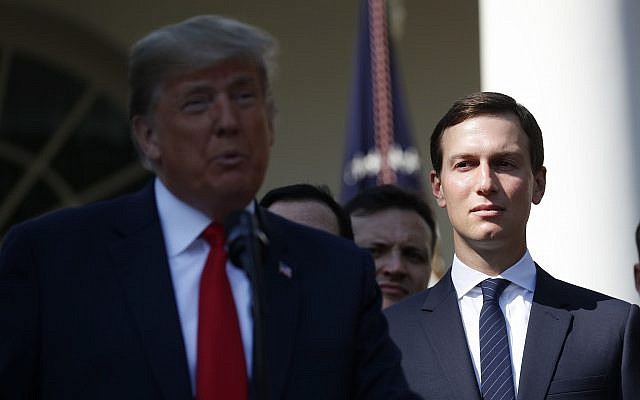Omer Javed |
In a TV programme on Dunya TV on Sunday, October 07, 2018, Dr. Moeed Pirzada held a discussion with renowned businessman Mr. Arif Habib on the question of whether Pakistan should go to the IMF (International Monetary Fund) for negotiating another IMF programme.
Not questioning the intentions of the worthy business, and like him, others who advocate these days that Pakistan should enter IMF programmes to (a) build up foreign exchange reserves, and (b) bring macroeconomic stabilization, it is important to analyze what economic literature says overall and the performance of IMF programmes in Pakistan.
The poor will feel the very pointed nature of it, due to the recession it will set in and the lack of welfare programme it will bring.
Overall I disagree that IMF programmes bring discipline. This is because just looking at the economic literature on this would indicate that without the improved quality of institutions, IMF programmes will bring neither sustained macroeconomic stability nor economic growth.
In fact, case after case in Latin America for example, the economic downturn, and macroeconomic variables have mostly deteriorated, soon after the programme ended; the case of Argentina beings this quite evidently. At the same time, the case of better performance of IMF programmes in countries like Greece, for example, is different because the economic institutional quality and other human development indicators were a lot better than developing countries.
Read more: Will PTI be forced to embrace IMF?
Moreover, in any case, a country like Pakistan, with issues of high-income inequality, poverty and employment issues, it will be ill-advised to take that country once again to IMF programmes, whose bread and butter is to go for broad-brush Aggregate Demand management of the economy.
The poor will feel the very pointed nature of it, due to the recession it will set in and the lack of welfare programme it will bring. Also under poor economic and political institutional quality, any macroeconomic gains will most likely be of temporary nature, as economic literature highlights.
‘The economic impact of International Monetary Fund programmes: institutional quality, macroeconomic stabilization and economic growth.’
Therefore, a package of supply- and demand-side policies need to be brought, in a creative way by the current government. Having said, recourse to IMF programme is made as the last resort, and in that case it needs to be ensured that programme is (a) not tilted in favour of strong demand management policies, (b) moves beyond structural adjustment under the influence of ‘Washington-consensus’ styled policies and focuses on broad institutional development, and (c) broadens the focus of policies to include greater welfare programme and not limited social security policies.
I will now explain this in a more research-based methodical way, on the basis of borrowed excerpts (with slight modifications at time to adapt to the needs of this op-ed) from my own doctoral research-based book (Springer; 2016), ‘The economic impact of International Monetary Fund programmes: institutional quality, macroeconomic stabilization and economic growth.’
Read more: Why IMF looks unavoidable?
Although formed in 1945 at Bretton Woods (USA) to primarily deal with the instability due to frequent currency manipulations by individual countries for short-term gains, after the Third World Debt Crisis of 1982, IMF enhanced its role to both providing balance of payments (BOP) support to countries in need and for helping them in meeting their growth concerns.
Research indicated that programme impacts on recipient countries were below par for both economic growth and macroeconomic stability, mainly as an outcome of greater thrust on the demand side of the economy; at the cost of neglecting the much-needed supply-side focus.
Empirical evidence, in particular, during the last three decade or so, indicates that institutions matter for economic growth.
The very design of the IMF programme has come under criticism for tilting heavily on the side of the Monetarist way of thinking, since more focus was placed on the demand side of the economy, and less on the supply side, and in that sense the programme was too rigid to accommodate the specific needs of a particular country; with programme conditionalities in many countries causing stagflationary consequences for recipient countries.
The result of all this has been that overall during the last three decades or so, IMF programmes have not allowed recipient countries to achieve sustained macroeconomic stability, and have at most been neutral for economic growth.
Read more: IMF programmes, institutional quality and export performance – Omer Javed
IMF programmes borrow heavily from this traditional thinking, which sees the little role of institutions and government, therefore, IMF conditionalities primarily focus on monetary aggregates, targeting on the demand side of the economy and have not concerned themselves much with institutions on the supply side of the economy. Empirical evidence, in particular, during the last three decade or so, indicates that institutions matter for economic growth.
This is all the more important because fiscal side response, at the back of right-sizing of government, and by introducing greater regulation and bringing hierarchy to markets, is needed to reach correct prices in markets; an important aspect of the macroeconomic discipline, inflation is as much a non-monetary phenomena as monetary in developing countries especially.
This situation changed during the late 1980s when economic growth started to deteriorate and inability to deal successfully with deficits led to building up of debt.
Pakistan has been a prolonged user of IMF resources since the late 1980s. During 1980–2009, Pakistan was one of the 44 prolonged users; remaining under IMF programmes for half of those 30 years (where Mali and Senegal were at the top with 23 years each during the time period taken).
Moreover, Pakistan remained a prolonged user during both the decades of the 1990s and 2000s. Even after being a prolonged user it could not achieve sustained macroeconomic stabilization, while yearly economic growth on average since 1980s was substantially lower than that of the two decades before it (IEO 2002, pp. 119–121).
Read more: PM Imran contemplating a strategy to avoid IMF
Although, Article I, Clause (V) of the Articles of Agreement of the International Monetary Fund indicates that resources will be made available to members on a ‘temporary’ basis, it is ironic that since 1988 Pakistan has entered more than 12 IMF programmes (with the most recent being the ‘Extended Fund Facility’ (EFF); while the programme completion rate has been abysmally low, as only two of the programmes so far has been able to meet the macroeconomy related targets.
The fact that Pakistan has been able to get frequent IMF financial support underlines not only the recidivist behaviour but also raises questions about the IMF’s criteria behind negotiating future programmes with recipient countries that had poor programme implementation record.
IMF has assumed in its programmes a high level of policy implementation of the conditionalities.
This easy availability of money and lack of political will appear to have allowed successive governments to continuously postpone implementation of the reform agenda negotiated with the IMF; one of the reasons behind the poor performance under the programmes, in terms of macroeconomic stability and economic growth.
Independent Evaluation Office of the IMF pointed out that Pakistan’s yearly economic growth was on average around 6–7 % during the 1970s to the later part of 1980s, and the country was able to sustain its deficits in the fiscal and external sectors, without needing any major foreign assistance.
Read more: No to IMF bail out – Farid A Malik
This situation changed during the late 1980s when economic growth started to deteriorate and inability to deal successfully with deficits led to building up of debt. Hence, the country entered successive IMF programmes in the years to follow, starting around the later part of the 1980s.
Looking back, the experience proved to be worse in terms of yearly economic growth during 1988–2000, which on average stood at around a little less than 4 %, while at the same time major macroeconomic indicators, for example, inflation rate, foreign direct investment, export growth, and import cover in terms of foreign exchange reserves, all slacked when compared to the earlier two decades.
One of the ways for IMF to do this is to base the programmes more on the framework of New Institutional Economics (NIE), which does not leave most of interaction of agents in the economy on market forces alone.
Since 2000, the situation has not changed much in terms of sustained macroeconomic stability and economic growth, although Pakistan continues
to rely on IMF resources (with only an absence of a few years during the mid-2000s). Weaknesses in the rigid IMF’s programme framework, the limitations of the programme design to address the underlying institutional problems, along with easily available IMF finances, even at the back of low programme completion rates by Pakistan, could not allow the country to achieve sustained macroeconomic stabilization and economic growth.
IMF has assumed in its programmes a high level of policy implementation of the conditionalities. In the wake of the overall weak institutional environment in programme countries, like Pakistan, where the situation is much worse on average in the case of prolonged users, expecting a high implementation rate of programme conditionalities has been over-ambitious from IMF, to say the least.
Read more: Will the new government knock on IMF’s door? – Dr. Ashfaque…
For example, starting from the very monetary sector, IMF’s programme design assumes a predictable and stable demand of money in the economy, but in a weak institutional environment of programme countries in general and prolonged users (like Pakistan) in particular, such assumptions are overly restrictive and unrealistic.
Even forecasting the underlying variability in circulation in income velocity lacks much precision, and hence reduces programme objectivity/implementation record with relation to monetary aggregates targeting.
Therefore, IMF programmes not only need to focus on institutional determinants but also need to help programme countries like Pakistan, move toward inclusive institutions. One of the ways for IMF to do this is to base the programmes more on the framework of New Institutional Economics (NIE), which does not leave most of interaction of agents in the economy on market forces alone.
Any future programme with the IMF should internalize aspects on the lines indicated above by the government.
NIE acknowledges the importance of institutions at the back of the realization that agent’s rationality is bounded, that opportunistic behaviour can exist to safeguard vested interests, that transaction costs (that is costs related to gathering and inspecting information, along with pertaining to enforcement, among others) exist, that there is a need to enforce contracts (more so in an ever-increasing environment of impersonal exchange) and that an environment is needed for optimal allocation and adequate safeguard of property rights.
To conclude: IMF programmes by basing its programmes on Neo-Classical/Monetarist behavioural assumptions, have basically seen macroeconomic issues, mainly the BOP imbalance, as a consequence of not properly targeting of monetary aggregates by the recipient country.
Read more: Imran and the IMF: Pakistan’s bailout dilemma
In this sense, it limited its scope by mainly focusing on the demand side of the economy, while putting less emphasis on the institutional determinants (on the supply side), which have been shown in the literature to play an equally important role in positively impacting macroeconomic stability and economic growth.
Any future programme with the IMF should internalize aspects on the lines indicated above by the government. Also, it is well-advised that policymakers and businessmen should take a holistic view of IMF programmes before formulating public opinion.
Omer Javed holds Ph.D. in Economics from the University of Barcelona, Spain. A
former economist at International Monetary Fund, he is the author of Springer published
book (2016), ‘The economic impact of International Monetary Fund programmes:
institutional quality, macroeconomic stabilization, and economic growth’. He tweets at @omerjaved7. The views expressed in this article are author’s own and do not necessarily reflect the editorial policy of Global Village Space.














